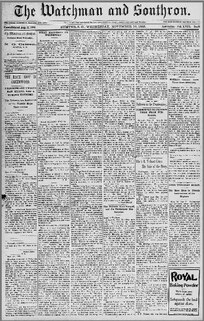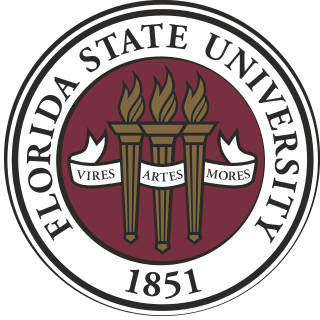Mass racial violence in the United States, also called race riots, can include such disparate events as:

Jackson County is a county located in the U.S. state of Florida, on its northwestern border with Alabama. As of the 2010 census, the population was 49,746. Its county seat is Marianna.
Lynching is a premeditated extrajudicial killing by a group. It is most often used to characterize informal public executions by a mob in order to punish an alleged transgressor, or to intimidate a group. It can also be an extreme form of informal group social control, and it is often conducted with the display of a public spectacle for maximum intimidation. Instances of lynchings and similar mob violence can be found in every society.

Quincy is a city in Gadsden County, Florida, United States. The population was 7,972 at the 2010 census, up from 6,982 at the 2000 census. It is the county seat of Gadsden County. Quincy is part of the Tallahassee, Florida Metropolitan Statistical Area.

Marianna is a city in Jackson County, Florida, United States. The population was 6,102 at the 2010 census. In 2017 the estimated population was 7,293. It is the county seat of Jackson County and is home to Chipola College. The official nickname of Marianna is "The City of Southern Charm".

Ida Bell Wells-Barnett was an African-American investigative journalist, educator, and an early leader in the civil rights movement. She was one of the founders of the National Association for the Advancement of Colored People (NAACP). She arguably became the most famous black woman in America, during a life that was centered on combating prejudice and violence, who fought for equality for African Americans, especially women.
In United States history, the Redeemers were a political coalition in the Southern United States during the Reconstruction Era that followed the Civil War. Redeemers were the Southern wing of the Bourbon Democrats, the conservative, pro-business faction in the Democratic Party. They sought to regain their political power and enforce white supremacy. Their policy of Redemption was intended to oust the Radical Republicans, a coalition of freedmen, "carpetbaggers", and "scalawags". They generally were led by the rich former planters, businessmen, and professionals, and they dominated Southern politics in most areas from the 1870s to 1910.
This is a timeline of the African-American history in what is now the United States, from 1565 to the present.

Lynching is the practice of murder by a group of people by extrajudicial action. Lynchings in the United States rose in number after the American Civil War in the late 19th century, following the emancipation of slaves; they declined in the 1920s. Most lynchings were of African-American men in the Southern United States, but women were also lynched. White lynchings of blacks also occurred in the Midwestern United States and the Border States, especially during the 20th-century Great Migration of blacks out of the Southern United States. The purpose was to enforce white supremacy and intimidate blacks through racial terrorism. According to Ida B. Wells and the Tuskegee University, most lynching victims were accused of murder or attempted murder. Rape or attempted rape was the second most common accusation; such accusations were often pretexts for lynching blacks who violated Jim Crow etiquette or engaged in economic competition with whites. Sociologist Arthur F. Raper investigated one hundred lynchings during the 1930s and estimated that approximately one-third of the victims were falsely accused. On a per capita basis, lynchings were also common in California and the Old West, especially of Latinos, although they represented less than 10% of the national total. Native Americans and Asian Americans were also lynched. Other ethnicities, including Finnish-Americans, German-Americans and Italian-Americans were also lynched occasionally.

James Cameron was an American civil rights activist. In the 1940s, he founded three chapters of the National Association for the Advancement of Colored People (NAACP) in Indiana. He also served as Indiana's State Director of the Office of Civil Liberties from 1942 to 1950.
The history of Tallahassee, like the history of Leon County, begins with the Native American population and its interaction with British and Spanish colonists as well as colonial Americans and fugitive slaves, as the Florida Territory moved toward statehood. Growing numbers of cotton plantations increased the settlement's population greatly. It became a city and capital in 1821.
Racial passing occurs when a person classified as a member of one racial group is accepted as a member of a racial group other than their own. Historically, the term has been used primarily in the United States to describe a person of color or multiracial ancestry who has assimilated into the white majority during times when legal and social conventions of hypodescent classified the person as a minority, subject to racial segregation and discrimination, regardless of their actual ancestry.

Andrew Warren Sledd was an American theologian, university professor and university president. A native of Virginia, he was the son of a prominent Methodist minister, and was himself ordained as a minister after earning his bachelor's and master's degrees. He later earned a second master's degree and his doctorate.

The Phoenix election riot occurred on November 8, 1898, near Greenwood County, South Carolina, when a group of local Democrats attempted to stop a Republican election official from taking the affidavits of African Americans who had been denied the right to vote. The race-based riot was the outcome of increasing tensions between not only the Republican and Democratic parties, but also White Americans and the area's African American population.
The Ocoee massacre was a white mob attack on African-American residents in northern Ocoee, Florida, which occurred on November 2, 1920, the day of the U.S. presidential election. The town is in Orange County near Orlando. As many as 60 or 70 African Americans may have been killed during the riot, and most African-American-owned buildings and residences in northern Ocoee were burned to the ground. Other African Americans living in southern Ocoee were later killed or driven out on threat of more violence. Ocoee essentially became an all-white town. The riot has been described as the "single bloodiest day in modern American political history".

White Southerners, or simply Southerners, and historically Southrons, are a creole ethnic group native to the Southern United States descended from the predominantly Northwestern European settlers who arrived during the colonial era, a minority of African-Americans and American Indians, as well as varying waves of white immigration from various parts of Europe, Latin America, the former Ottoman Empireand the Caribbean. This admixture resulted in creolization which led to a distinct identity and culture being formed. Immigration to the Southern states between 1830 and 1860 was relatively low. Most White Southerners are of British Protestant descent although significant non-British groups of White Southerners existed such as Irish, Germans, French, Hispanic, Italian (especially in New Orleans, Louisiana, Greek and Jewish. These various groups experienced varying degrees of intermarriage, cultural assimilation, and linguistic assimilation into the predominant Anglo-Protestant Southern culture, with some maintaing parts of their original culture and language or none at all.

Florida A&M Hospital (1911-1971) was the first institution in Florida providing medical care to African Americans, who, during the segregation period, were not permitted to receive care at whites-only hospitals. There was no other such institution within 150 miles (240 km) of Tallahassee. In 1940, "less than a dozen" counties in Florida had hospital facilities for Negroes.
Willie James Howard was a 15-year-old African-American living in Live Oak, Suwannee County, Florida. He was lynched for having given Christmas cards to all his co-workers at the Van Priest Dime Store, including Cynthia Goff, a white girl, followed by a letter to her on New Year's Day:
Dear Friend,
Just a few line[s] to let you hear from me [.] I am well an[d] hope you are the same. This is what I said on that [C]hristmas card. From W. J. H. With L. [love] I hope you will understand what I mean. That is what I said[.] [N]ow please don’t get angry with me because you can never tell what may get in some body[.] I did not put it in there my self. God did[.] I can't help what he does[,] can I[?] I know you don’t think much of our kind of people but we don’t hate you all[.] [W]e want to be your all friends but you want let us [.] [P]lease don't let any body see this[.] I hope I haven't made you [mad.] [I]f I did tell me about it an[d] I will [forget] about it. I wish this was [a] northern state[.] I guess you call me fresh. Write an[d] tell me what you think of me[,] good or bad. Sincerely yours, with, [sic]
From Y.K.W.
Fo[r] Cynthia Goff
I love your name. I love your voice, for a S.H. [sweetheart] you are my choice.
Cellos Harrison was an African American man in Marianna, Florida who was lynched on June 16, 1943 after being rearrested when his murder conviction was overturned by the U.S. Supreme Court because his confession was obtained under duress. He was twice convicted by an all-white jury of murdering a white man who was working as a gas station attendant and store clerk. State and federal investigations were launched into the lynching but no one was ever indicted or convicted. A decade earlier Claude Neal was lynched in Marianna. The area was also wrought by a wave of violence against African Americans and Republicans during the Reconstruction Era after the American Civil War in what is known as the Jackson County War.
Democracy Abroad, Lynching At Home: Racial Violence In Florida is a 2015 history book by Tameka Hobbs. In it, Hobbs discusses the national and international implications of mid 20th century Florida lynchings, concentrating on the lynchings of Arthur C. Williams, Cellos Harrison, Willie James Howard, and Jesse James Payne.













